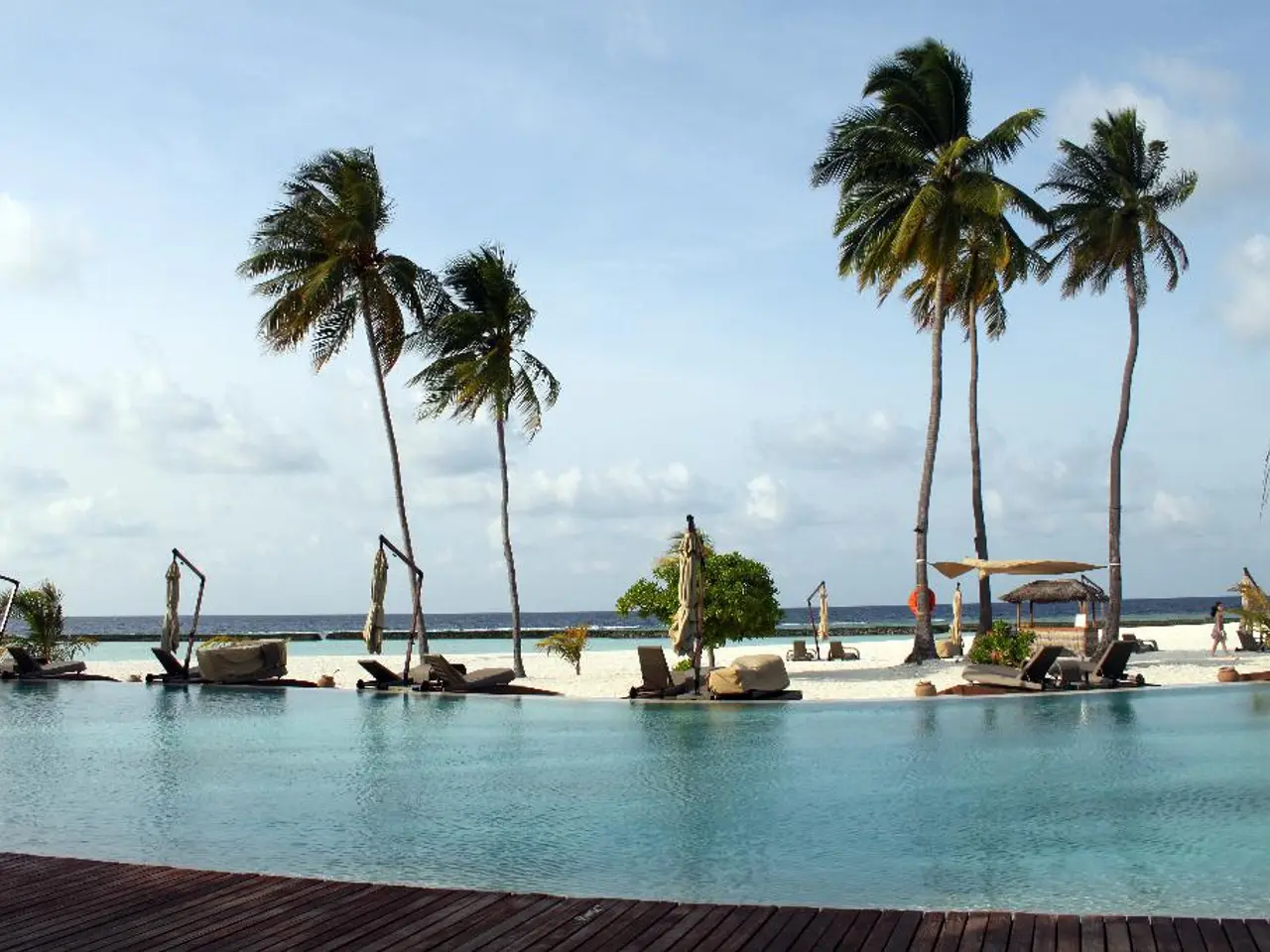Beach Infections: An Examination of Leptospirosis and Rotavirus, and Why Hazard Amplification Occurs Post-Rainfall
Swimming in the sea can be a refreshing and enjoyable experience, but it's essential to be aware of the potential risks of marine infections. Infections such as wound infections, gastrointestinal disorders, and even more severe conditions can occur from cuts, scrapes, and other skin injuries sustained in the sea.
One of the most common marine ailments is caused by pathogens entering seawater through sewage, leading to rotavirus infection and other gastrointestinal infections. To minimise the risk of these infections, it's crucial to remember to use only trusted sources of water and to cook seafood thoroughly before consumption.
Swimmers can protect themselves from these infections by choosing clean beaches for swimming, avoiding swallowing seawater, especially for children, washing hands thoroughly with soap before eating, after using the toilet, and after swimming, using antiseptics on wounds and scrapes, drinking only bottled or boiled water, and thoroughly cooking seafood.
Infections from bacteria from the genus *Vibrio* are particularly common. The key infections include Vibrio vulnificus infections, which can lead to severe wound infections and bloodstream infections, and Vibrio parahaemolyticus infections, which mainly cause gastrointestinal symptoms such as diarrhea and abdominal cramps. These bacteria thrive in warm seawater and brackish water, especially at temperatures above 15°C (59°F).
To prevent these infections, swimmers should avoid swimming with open wounds or cuts in warm seawater, refrain from swallowing seawater and avoid contact with potentially contaminated water, especially in areas where water quality is poor or after heavy rains which can increase contamination. Practising good hygiene after swimming, such as thoroughly rinsing off with clean water and drying well, is also important.
Other less common but notable infections from natural water sources include leptospirosis, caused by *Leptospira* bacteria found in warm, stagnant freshwater but potentially present near coastal areas with runoff contamination. Special attention should be paid to vacationing with small children, as they are more susceptible to infections.
It's essential to remember that the risk of infection increases during and after rain, due to more dirty water in the sea. Consult a doctor if symptoms of illness appear, as self-medication is not recommended. Local authorities regularly publish information about the sanitary condition of beaches and water quality, so it's advisable to check these before swimming.
By following these simple rules, one can enjoy a holiday on the Black and Azov Seas without any adverse health effects. Stay safe and have fun!
- Science indicates that the sea, while refreshing, may harbor potential risks, especially for marine infections.
- Infections like wound infections, gastrointestinal disorders, and more severe conditions can result from cuts, scrapes, and other skin injuries in seawater.
- Rotavirus infection and other gastrointestinal disorders stem from pathogens entering seawater through sewage.
- To reduce the risk of these infections, it's vital to trust water sources and cook seafood thoroughly.
- Swimmers should choose clean beaches for swimming and avoid swallowing seawater, especially children.
- Hygiene practices like washing hands before eating, after using the toilet, and after swimming are key.
- Antiseptics should be used on wounds and scrapes, while bottled or boiled water and thoroughly cooked seafood should be consumed.
- Bacteria from the genus Vibrio are commonly found in warm seawater, causing infections like Vibrio vulnificus leading to severe wound infections and bloodstream infections, and Vibrio parahaemolyticus, causing gastrointestinal symptoms.
- Swimmers should avoid open wounds or cuts in warm seawater, avoid swallowing seawater, and avoid contact with potentially contaminated water.
- Practising good hygiene after swimming like rinsing off with clean water and drying well is crucial.
- Less common but notable infections include leptospirosis, caused by Leptospira bacteria in warm, stagnant freshwater but potentially present near coastal areas.
- Vacationing with small children demands special attention, as they are more susceptible to infections.
- The risk of infection surges during and after rain, with more dirty water in the sea.
- Symptoms of illness should prompt a doctor's consultation, as self-medication is not advisable.
- Local authorities publish information about the sanitary condition of beaches and water quality, making it advisable to check before swimming.
- By adhering to these simple rules, a holiday on the Black and Azov Seas can be enjoyed without health concerns, ensuring safety and fun.
- For comprehensive workplace-wellness, it's essential to pay attention to medical-conditions, chronic diseases, and cancer, among others.
- Respiratory conditions necessitate examining lung health and checking for signs of breathing difficulties, while digestive-health necessitates monitoring diet and observing for symptoms of disorders.
- Eye-health requires regular eye exams, while hearing tests are necessary for keeping tabs on potential hearing issues.
- Health-and-wellness involves routine fitness-and-exercise, ensuring sexual-health, paying attention to autoimmune-disorders, and considering climate-change's impact.
- Mental-health, men's-health, and women's-health all require care and attention to their respective conditions.
- Skin-care demands consistent maintenance, therapies-and-treatments, and nutrition.
- Aging necessitates considering senior-related health concerns, like cardiovascular-health and memory-related issues.
- Environmental-science plays a role in understanding and addressing skin-conditions, among other health concerns.
- Financial matters like personal-finance, wealth-management, and investing may influence one's ability to access and maintain health-and-wellness.
- Hobbies like home-and-garden, business, personal-finance, gadgets, and data-and-cloud-computing can contribute to overall well-being.
- Arts like fashion-and-beauty, food-and-drink, books, shopping, social-media, movies-and-tv, entertainment, and music can be a part of a balanced lifestyle.
- Relationships, pets, travel, cars, and hobbies can contribute to stress-reduction and overall well-being.




